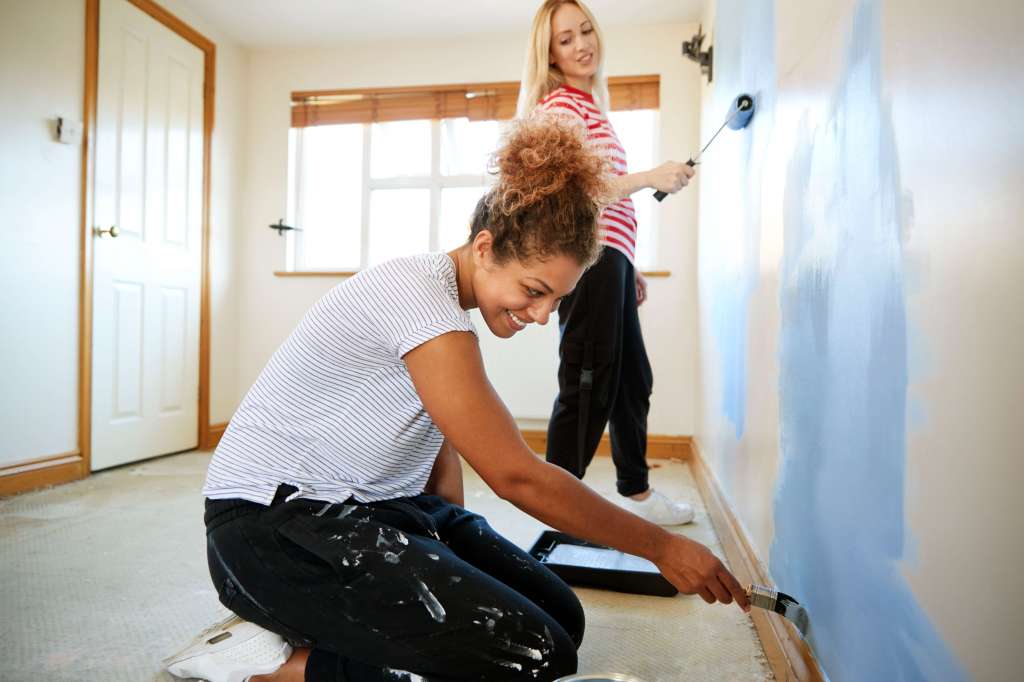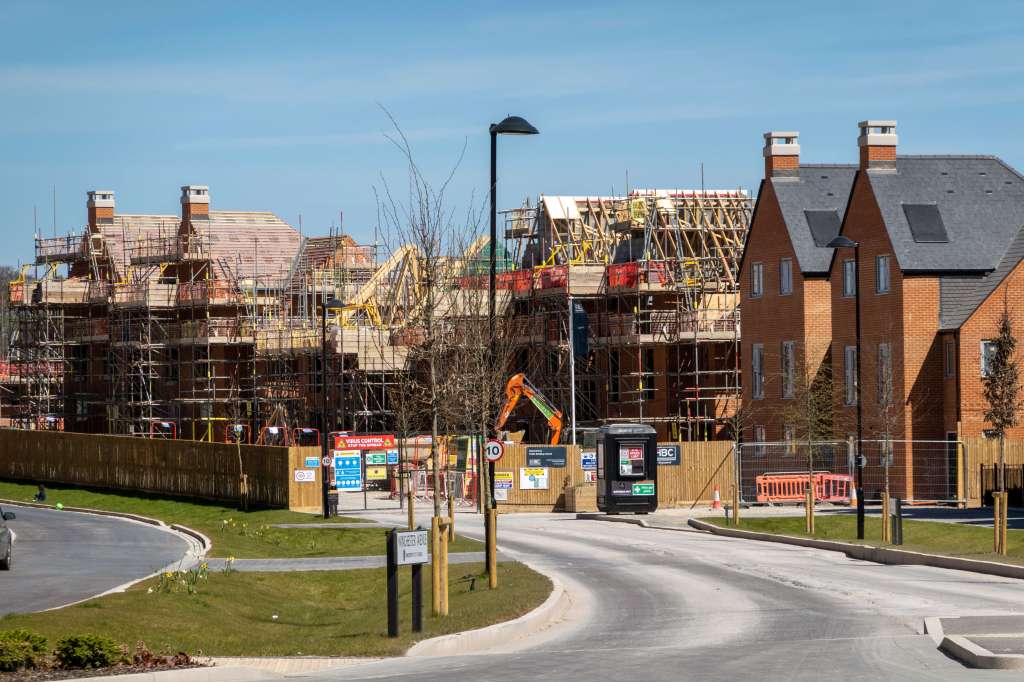Investing in property can be rewarding, allowing you to earn monthly income through rent and benefit from long-term property price rises.
But you’ll need to do your research before investing, as there are lots of factors to consider.
Read our ultimate guide to property investment in the UK for tips on choosing a property and what you’ll need to do after you’ve bought one.
What is property investment?
Investing in property is when you buy a property with the aim of getting a financial return. Buying a property to live in doesn’t count as an investment, although you may benefit from rising property prices over time.
In the UK, most investors rent their properties out to tenants to earn monthly rental income. However, some investors buy cheap properties, renovate them, and sell them on for a profit. This is known as property flipping.
Is property a good investment?
Investing in property is generally seen as a reliable way of earning passive income compared to other investment asset classes such as stocks and shares.
This is because there’s always likely to be demand for rental property. Plus average property prices generally increase over time, but this isn’t guaranteed.
For example, according to Land Registry data, the average house price in England increased from £101,355 in April 2002 to £299,249 in April 2022. This is an average rise of £197,894, equivalent to almost 200 per cent over 20 years.
Meanwhile, rental growth over the last 10 years has also surged. According to the HomeLet Rental Index, the average monthly cost to rent a property in the UK (excluding London) during November 2012 was £656. This figure increased by more than 40 per cent to £936 by June 2022. Again this isn’t guaranteed. For example, rents fell in some urban areas during the pandemic.
Although you can earn a good return by investing in property, it does have some potential downsides. These include:
- extra tax and insurance costs
- cost of maintaining a property
- effort and stress of managing a rental property
- cost of running a property when it’s empty (known as a void period)
Investing in property can be complex and isn’t for everyone. This article is just a guide and isn’t advice, so if you have questions, please speak to a professional adviser.
Buying an investment property: location, property type, and yield
Choosing the right location and type of property is crucial if you want to make a success of your investment.
There are two main ways to make money from buy-to-let property investment:
- Rental income from tenants (usually paid monthly)
- Rising property prices (known as capital appreciation)
One of the most popular ways of working out whether a property is likely to be a sound investment is by calculating its potential yield. A yield shows the return on a property as a percentage – read our guide on how to calculate rental yield for more information.
But what locations and property types are likely to generate the best yield?
When choosing an investment location, here are some key points to consider:
- is the average property price affordable and are prices likely to rise over time?
- is there a strong rental market with price growth and high demand from tenants?
- is the area likely to become more or less appealing to tenants in the future?
- do you live close enough to the area to be able to visit the property regularly?
How to buy an investment property
You could buy an investment property the traditional way through an estate agent, using property websites like Rightmove and Zoopla.
However, property auctions are popular with investors because they’re quick and there’s a good chance of finding a bargain. Read our article on buying at auction for tips.
For more on choosing an investment property, read these guides:
- How to become a landlord
- How to build a property portfolio in eight steps
- A landlord’s guide to choosing a tenant
Five key considerations for property investors
Here are five important things you’ll need to think about when you’re planning your investment purchase and researching potential options.
1. How much will you need to pay in stamp duty and capital gains tax?
If you already own a property and buy another one as an investment, you’ll need to pay a three per cent stamp duty surcharge.
For example, if the investment property costs £350,000, your stamp duty bill would be £18,000 (instead of £7,500 if you were buying the property to live in yourself).
Here’s an overview of stamp duty rates for buyers of second properties:
Property purchase price | Normal stamp duty rate | Stamp duty rate for second home buyers |
Up to £125,000 | 0% | 3% |
£125,001 to £250,000 | 2% | 5% |
£250,001 to £925,000 | 5% | 8% |
£925,001 to £1.5 million | 10% | 13% |
Above £1.5 million | 12% | 15% |
Knight Frank has a handy stamp duty calculator to give you an idea of your stamp duty bill if you’re buying an investment property.
On top of this, property investors have to pay capital gains tax when they sell their investment. Read our guide to capital gains tax for more information on how it works and how much you might need to pay.
2. Will you need to spend money on the property before renting it out?
Before your property is ready for tenants, you may need to spend some money on getting it up to scratch. It’s important to factor in these costs before you buy your property as they could reduce your yield.
You’ll need to make sure that the property is habitable for tenants. And as part of the government’s proposed rental reforms, all private rental properties will soon need to meet the Decent Homes Standard.
If you’re investing in an area with lots of stock and low demand, you may need to spend more on the property to make it stand out to potential tenants.
How much you spend on renovating your property will also depend on the type of tenants living there. For example, if you’re renting to families or young professionals who are likely to stay for longer, you may want to spend more on fixtures and fittings than if you’re renting to students, who are likely to stay for a shorter period.

3. What type of tenants are you looking for?
The type of property you buy will depend on your target market of tenants.
For example, older properties are likely to have more bedrooms while new builds are likely to be more energy efficient, which could save investors and their tenants money on bills.
If you want to rent your property to three or more tenants from separate households, this is known as a House in Multiple Occupation (HMO). Most HMOs require a licence and there are rules on things like minimum bedroom sizes that you’ll need to follow.
4. Should you consider student property investment?
If you want to rent to students, you’ll need to take a slightly different approach.
There’s likely to be longer void periods when tenants are at home during the university holidays. As a result, it could be a good idea to visit the property more regularly to make sure there are no maintenance issues.
As most students don’t have a regular income, it’s common for landlords to ask for a guarantor. This means the rent will still be paid even if the student doesn’t have the money. Our guide to guarantors has everything you need to know.
5. Are you investing in an up and coming area?
If you want to benefit from long-term capital gains, it could be worth looking for a future rental property hotspot.
Property prices and rents in these areas are likely to be lower, but could rise rapidly in time as the area becomes more appealing to tenants.
Some of the common signs to look out for include:
- businesses moving to the area
- improvements to transport infrastructure
- regeneration of public areas
- lots of new housing developments

Should new investors take property investment courses?
If you’re completely new to property investment, you might be thinking about taking a course.
There are plenty of options out there, including some that are free. There are also lots of books and webinars to help you get started.
When looking at property investment courses, remember that if it sounds too good to be true then it probably is. It’s important to do your research on potential courses, read reviews from past customers, and be vigilant about potential scams.
Where are the best property investment opportunities?
Some of the best rental property yields in England can be found in northern cities where average property prices are lower but demand for rental homes is high.
Our article on the best buy-to-let areas has more information on the UK’s HMO property hotspots, where new landlords are investing, and the most popular areas by property type.
If you’re thinking about investing in London the upfront cost is likely to be higher, although it’s likely you’ll earn more in monthly rental income. Our article on London rent prices has an overview of the cheapest and most expensive boroughs in the capital.
What happens after you buy an investment property?
Once you’ve bought your buy-to-let property, you’ll need to get it ready for tenants. Some of the things you’ll need to do include:
- advertising the property
- making sure it complies with government regulations
- carrying out tenant referencing and organising a tenancy agreement
Read our pre-tenancy landlord checklist for an overview of 12 key steps you need to take before letting your property.
During the tenancy, it’s important to carry out regular inspections and checks. This can help you to spot any maintenance issues before they become serious and make sure tenants are looking after the property. Download our property inspection checklist to get started.
When tenancies end, you’ll need to prepare your property for the next set of renters. Our end of tenancy landlord checklist has the details of all the key steps you need to follow.
Should I list my property on Airbnb and become an Airbnb host?
Depending on where your property is located, you might want to consider running an Airbnb as a business instead of looking for long-term tenants.
Airbnb is a digital platform that allows people across the world to list rooms and entire homes for short time periods. Popular with holidaymakers and travellers looking for a place to stay in UK cities or beautiful areas of the country, Airbnb can be a flexible way to make money from your buy-to-let.
Is Airbnb profitable?
Being an Airbnb host can be an opportunity to make passive income from your rental property, particularly if you use an Airbnb management company to look after the changeover and cleaning.
You get to choose when and how often you have people stay in your property. Plus with nightly rates and guests looking for short-term accommodation, you can make a lot more money on Airbnb than renting if you get your pricing right.
Do your market research by looking at other similar Airbnbs to help you work out how much you might be able to charge in your area and the type of guests you might see. For example, popular city destinations might attract people looking for one to two-nights accommodation to enjoy the food, music and culture. Countryside properties could appeal more for longer holidays and staycations.
Use this Airbnb fee calculator to check average earnings of hosts in your area.
Airbnb rules and legal considerations
Make sure you read up on Airbnb rules and regulations and check your property complies with gas safety, tax, and legal regulations.
It’s worth noting that the government has launched a review to assess the impact of holiday lets on popular tourist areas across the UK. It’s still in the early stages, but keep an eye out for any updates in case this prompts any change in regulation of Airbnbs.
You should also check that your buy-to-let mortgage or holiday let mortgage allows you to be an Airbnb host.
Airbnb hosting fees
Airbnb hosts typically pay a fee of three per cent of the total booking cost for every stay.
Meanwhile, your guests pay a service fee to Airbnb on top of the property nightly rate and cleaning fee you set.
Insurance for Airbnb hosts
Airbnb offers liability insurance and damage protection called AirCover for Hosts, however it’s a good idea to have your own insurance too.
Simply Business offers holiday let insurance for Airbnb hosts if you rent out your property for stays no longer than 31 days, and you list your whole property (rather than just a room).
Holiday let insurance can protect your property from costs associated with damage to the building and its contents. It can also cover things like damage to your property caused by incidents like fire, lightning, and explosion – a cover that isn’t included with Airbnb’s host protection.
Welcome your guests
While you don’t have to worry about advertising your Airbnb yourself, you might want to think of things you can do to stand out and build good reviews. For example, you could create a holiday welcome pack for guests with your personal recommendations of restaurants and things to do. You can also recommend (or host) Airbnb Experiences in the area to give guests an insight into the local area.
Do you have any tips for investing in property? Let us know in the comments below.
Useful guides for buy-to-let landlords
- Rental reforms: landlords to prepare for buy-to-let market overhaul
- Is there an air source heat pump grant for landlords?
- Buy-to-let tax changes landlords should know about
- What does landlord insurance cover?
Get set with tailored landlord cover
Over 200,000 UK landlord policies, a 9/10 customer rating and claims handled by an award-winning team. Looking to switch or start a new policy? Run a quick landlord insurance quote today.
Moon Safari/stock.adobe.com
